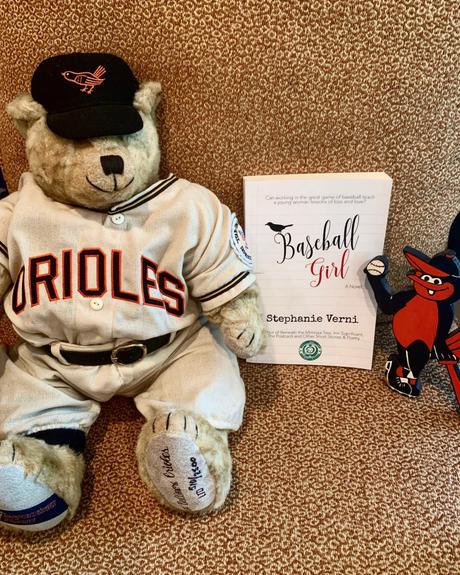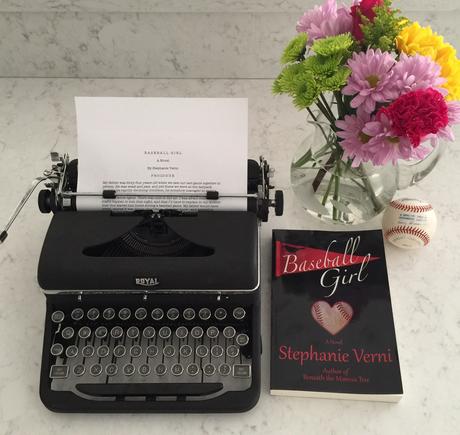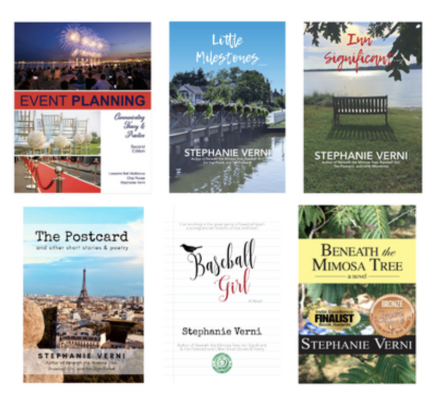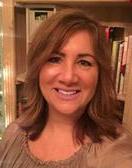
 THINGS THAT HAVE MOST AFFECTED MY LIFE
THINGS THAT HAVE MOST AFFECTED MY LIFE
My parents & family
My husband and kids
High school & college
Working in baseball
Being a teacher
Friendships
. THINGS THAT HAVE MOST AFFECTED MY STORYTELLING
THINGS THAT HAVE MOST AFFECTED MY STORYTELLING
Broken loves
Grandmothers
Life in baseball
Relationships (good & bad)
Losing people we love
Maryland’s beauty
.
BLACKBIRDS PARK is the fictional version of Camden Yards in my novel entitled Baseball Girl. I worked at Old Memorial Stadium and Camden Yards for the Orioles (hence the Cooperstown bear pictured here, a gift from Orioles owner Mrs. Angelos). I’m somebody who can feel romantic about places and about baseball. This novel is loosely based on my life working in baseball, an amalgamation of the people and places I loved over the years as I grew up in that sport. It’s a place that will always feel magical to me—I met my husband there, and my kids would not be here if not for baseball.
.
Feeling a little nostalgic today in the absence of baseball, I leafed through my copy of the book—a true labor of love for me. I had so much fun telling this story of Frankie, a woman who works in professional baseball, and her entanglements with a ballplayer and a sports writer. After having lost her father, she feels empty inside as baseball was their “thing.” Now, she must learn to navigate life without her dad. Each chapter opens with a baseball-related quote that I wrote that has something to do with that chapter. Additionally, Frankie’s flashbacks about her life with her father come in first person narratives that accent the third-person narration about these characters. I’m pretty proud of this story; it’s made up of all the joy, sorrow, heartbreak, and love I could give a story.

.
Links to purchase any of my books are here!
Thanks all!
xx
Chapter 19 EXCERPT © Stephanie Verni, Baseball Girl
Nineteen
“I never dreamed the team would let me go. I had a great season and was batting close to .300. It was a shock. But when isn’t it a shock to get released?”
~ Sparky Davis, former Blackbirds first baseman
Francesca was furiously knocking on Father John’s door, her knuckles turning red from the incessant pounding. She didn’t know where else to turn, and he knew her as well as anyone.
He answered the door in sweats, holding a steaming cup of coffee in his hand.
“Francesca,” he said, “is everything all right?”
“No, John, everything is not all right. Do you have a minute for an impromptu confession?”
“Is it a confession you need or a friend? Am I serving you as John or Father John?”
“Both.”
“You know I always have time for a good confession and never close the door to a dear friend,” he said.
“Well, I didn’t exactly use the word ‘good’ when describing the confession, now, did I? I can’t promise you that.”
“Come in,” he said, “and stop your gibberish.”
She visited his home at the rectory many times. Their friendship was always strong, even when they were younger. They became even closer during her father’s last fleeting days on this earth. It was actually Father John who told her to take her dad to a ballgame, despite the wheelchair and the difficulty of getting him there. He said it would do him good, and it ended up being something Francesca would never forget and would never regret. Though it was incredibly painful for her to watch her father’s physical state deteriorate and watch him use every ounce of energy to do the smallest of things like take a sip of water, she brought her father to the game nonetheless; she would always treasure those moments they shared as dusk fell on the ballpark that night, the last game they would see in person together.
“Coffee?” he asked, heading toward the small kitchen area. “Or would you prefer a glass of wine maybe.”
“Definitely wine. Is that okay?”
“No problem at all. Jesus was a big fan of it.”
He poured her a glass in one of his crystal wine glasses, and Francesca sank into his small leather chair, worn but cozy. He was reading, and the book had been turned upside down and been kept open to mark his page on the table.
“Is it any good?” Francesca asked him, pointing to the novel.
“I’m just a big Grisham fan. I pretty much read anything he writes,” he said.
“I like him, too,” she said, “even though he’s a man.”
“Ah, I see,” Father John said. “So now we’re getting down to our theme of the night: ‘Trouble with Men.’ What’s the confession?”
She nodded and sipped her wine. “Is it wrong to hate someone…a man? Because right now, I feel hatred building up inside of me.”
“Jesus doesn’t like hatred, nor do I. It’s not like you,” he said. “What’s happened?”
“I think the problem is me,” she said. “I’m no good with men. They all seem to leave me.”
“Who has left you?”
“Well, in high school, first it was Johnny, then it was my father, and all the other guys I’ve dated in college, and now it seems to be Joe.”
“Clarkson, huh?” Father John raised his eyebrows.
She nodded.
“I assume it got more serious since the last confession?”
“Unfortunately,” she said.
“That’s a shame. He’s a good hitter.”
“Oh, dear Lord. Not you, too.”
Father John fell silent for a moment.
“After several weeks together, things were going pretty well. But now it appears he there’s something in his past he neglected to tell me about. I got suckered in, Father John. I even allowed myself to start to fall in love with him.”
“And you’re sure he’s the father?”
“It appears that way.”
“Sweet Lord Jesus,” Father John said. On his brow, little beads of sweat started to form.
“Have you no advice to give, John? Have you nothing to offer me?”
“Only this: Hating someone for their actions is bad. It’s very bad. You can be angry, because in time you will overcome that. However, to reflect back on what you said earlier, your father did not leave you. He died. Given the choice between life and death, I’m quite certain he would have preferred to have stayed with us on our dear planet a little longer.”
“But the fact remains, he’s not here. Not when I need him.”
“No, Frannie, he may not be, but your loving mother is. Perhaps this is something you can talk with her about. Get her opinion. See what she has to say.”
“She’s better at that with Cissy. We don’t talk about men in depth,” she said. “I can’t trust men. I just can’t. It’s over for me. What did the Raven say in Edgar Allen Poe’s story? ‘Nevermore.’”
“But you’re here trusting me,” Father John said. “And the last time I looked, I was still a man.”
“Yes, but you’re like a direct line to God. I’m here to listen to you tell me what God thinks I should do because apparently following my own conscience is not working.”
“You know the expression, Frannie: time heals all wounds. You must breathe and consider that maybe it wasn’t meant to be with Clarkson. There are bigger fish for you to fry, my friend. You are being looked after, and you must trust in the events that pass before you. There is a reason for all things. It’s just that sometimes it takes a little while to figure them out.”
For a long time after that comment, the pair became pensive as they listened to the quiet ticking of Father John’s enormous grandfather clock while the sounds of Ella Fitzgerald played softly in the back- ground, almost as if in a whisper. Francesca sipped her wine, allowing it to warm her insides, and she breathed deeply. After the time of introspection passed, each of them in their own meditations, she cleared her throat to break the silence. However, it was Father John who had more to say.
“When I think about what you’ve told me, Frannie, your high school guy—Johnny—he wasn’t right for you anyway. You two were young, he was immature, and you were dealing with something that no kid her age should have to deal with. And Clarkson now, well, he’s a big-time ballplayer, which might come with a big ego to boot. He doesn’t know what he wants, and you shouldn’t be the one to try to help him figure it out, because in the end, you know who you are and what you want. It’s just going to take some patience to wait for it to come along.”
But what Father John failed to realize was, Francesca wasn’t actually waiting for anything. She was never one to wager that she would marry by a certain age and have kids and live in a house with a white picket fence. He was probably right. In the long run, could she see herself with Joe? In fact, that night at the movie house, while she had a great time, something felt awkward through all the elaborate courting. She had never been a needy or high-maintenance type of girl; she didn’t need jewels and furs, champagne and caviar.
And yet, she did what she swore she wouldn’t do—she fell for him. It had taken years, she thought, to allow herself to feel emotion, and now the energy she had put into that relationship felt wasted. If Francesca allowed herself to be completely honest, she came up empty handed. She actually had no idea what she wanted in a man at all.
Or was that statement untrue? She thought again, and perhaps it was. What she wanted was a man like her father—someone kind, supportive, unselfish, and caring to a fault. Someone who made her laugh and helped her look at life with joy.
She was sitting before one of those types of men, disguised as a priest, but who was wholeheartedly a caring and kind man, so they did exist. She knew that.
She just wasn’t sure if one existed for her to believe in.
She wasn’t sure. She just wasn’t sure anymore.
***

Stephanie Verni is Professor of Communication at Stevenson University. She is the author of 5 works of fiction and the co-author of one academic textbook on Event Planning. Her character-driven books are set in beautiful Maryland locations and examine the realities of the human heart. Connect with her on Instagram at stephanie.verni or on Twitter at @stephverni. Or, visit her Amazon page at Stephanie Verni, Author.

